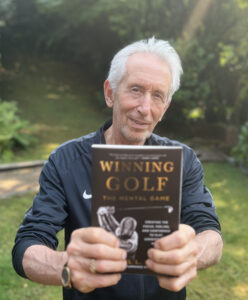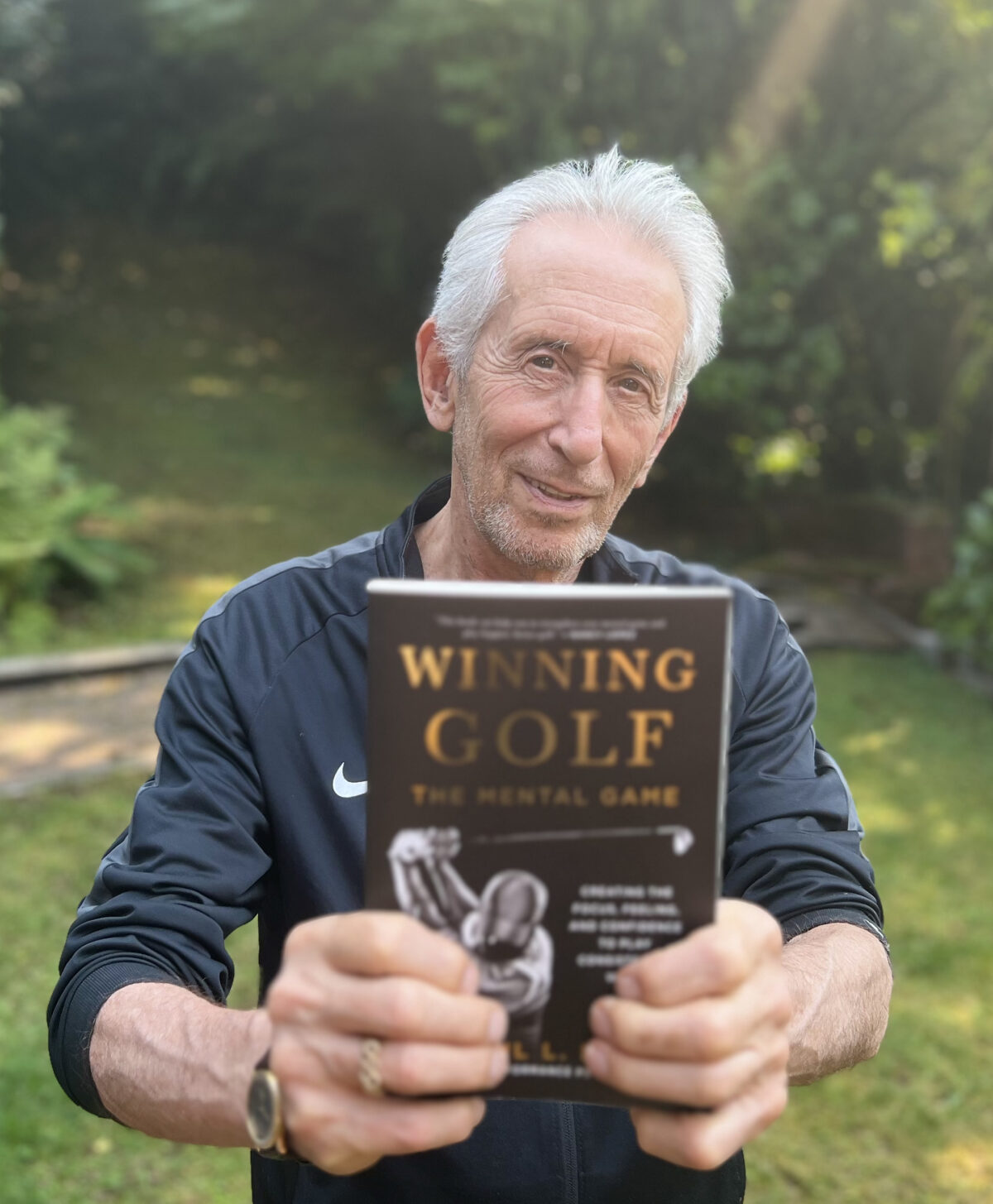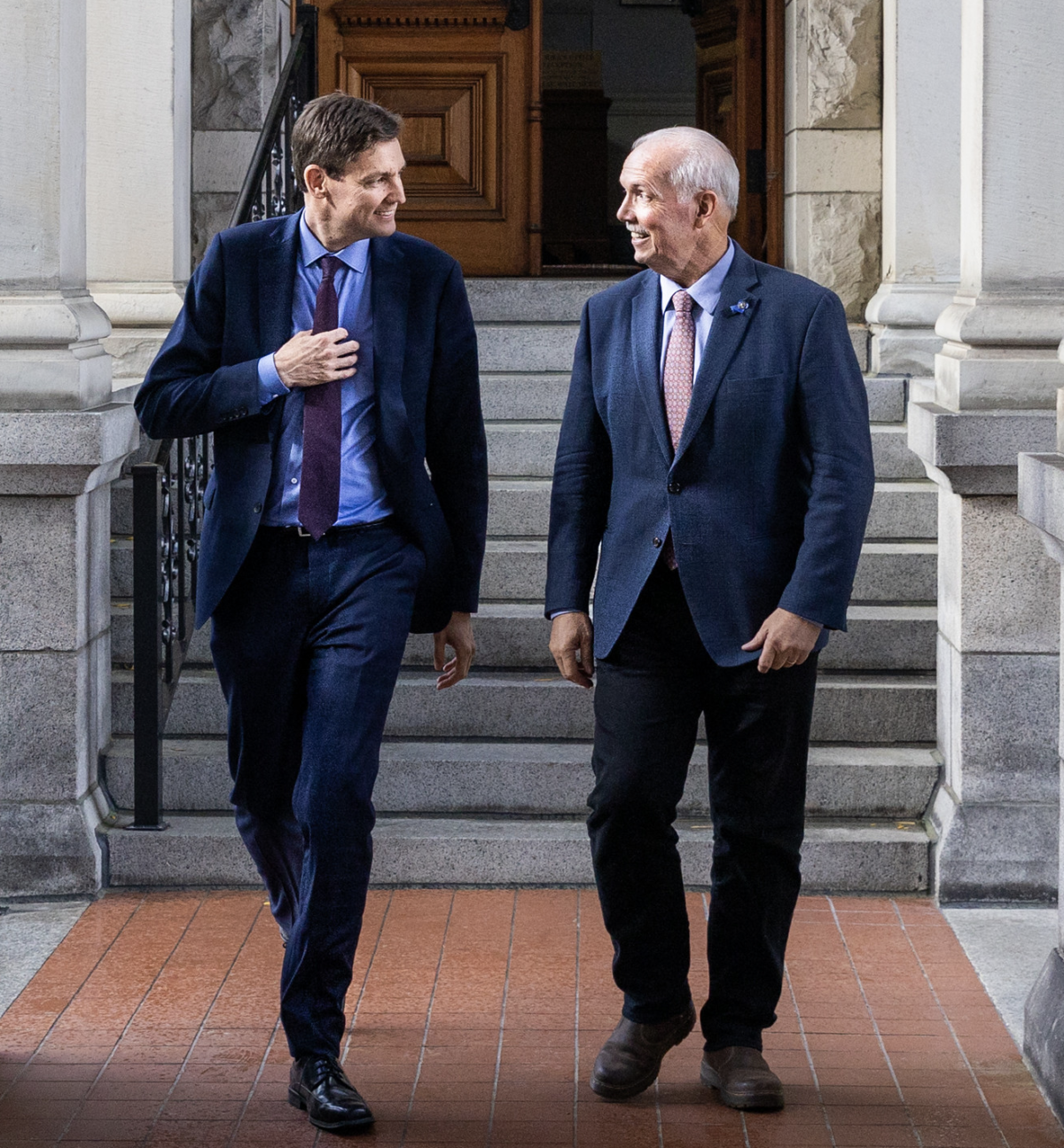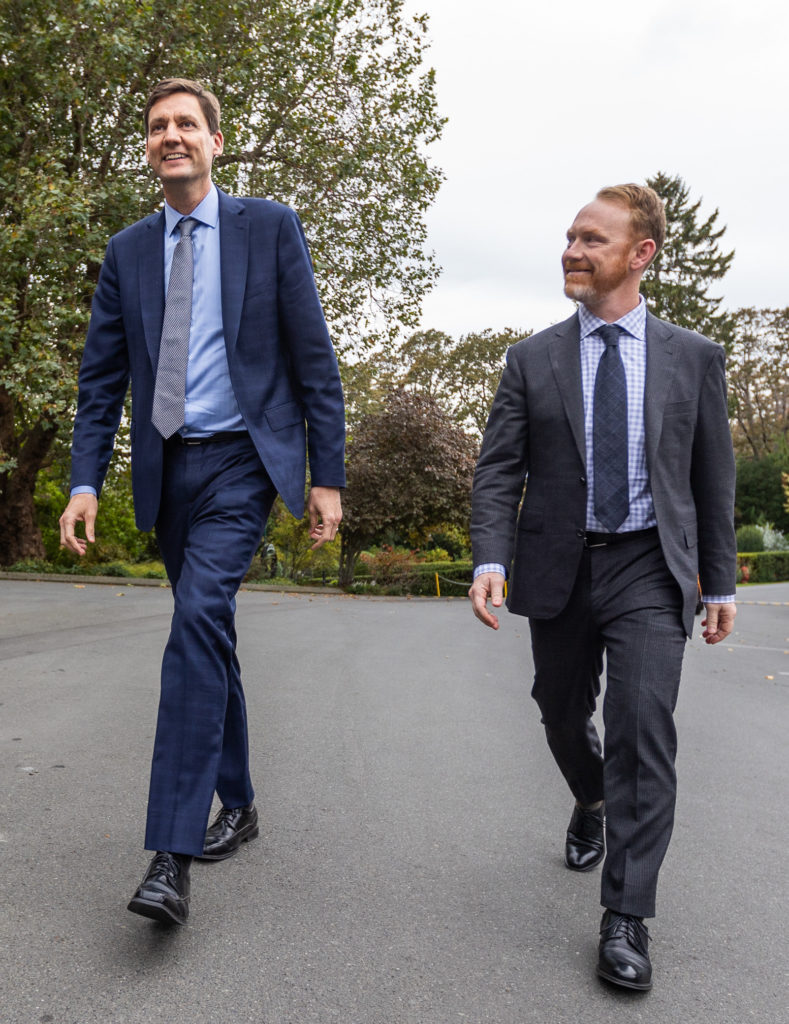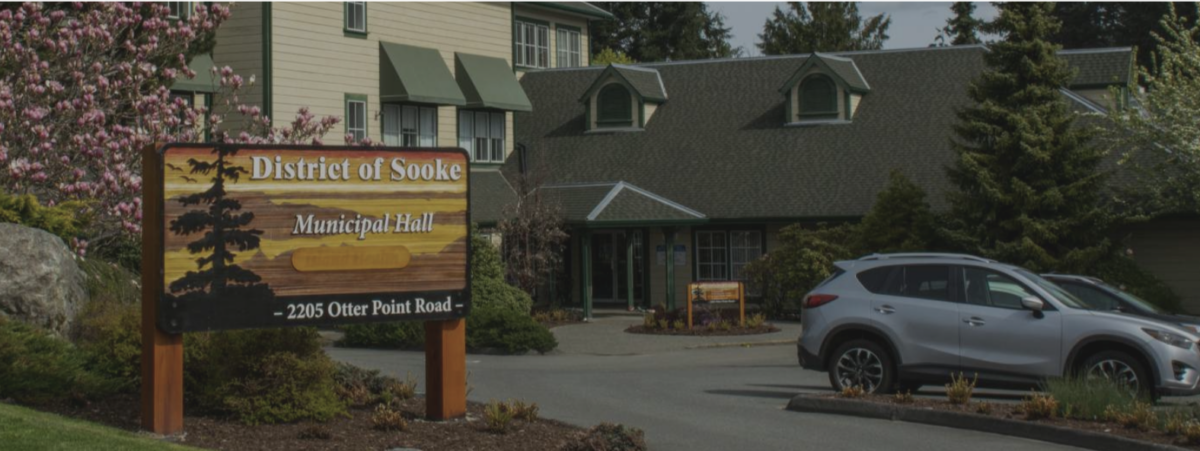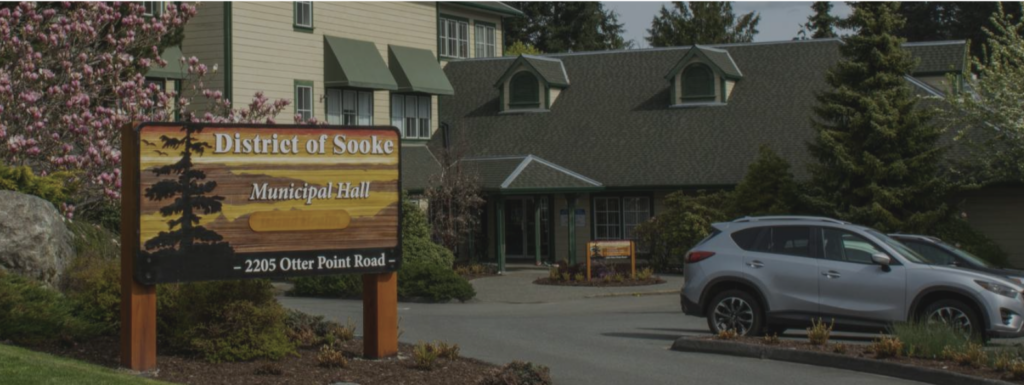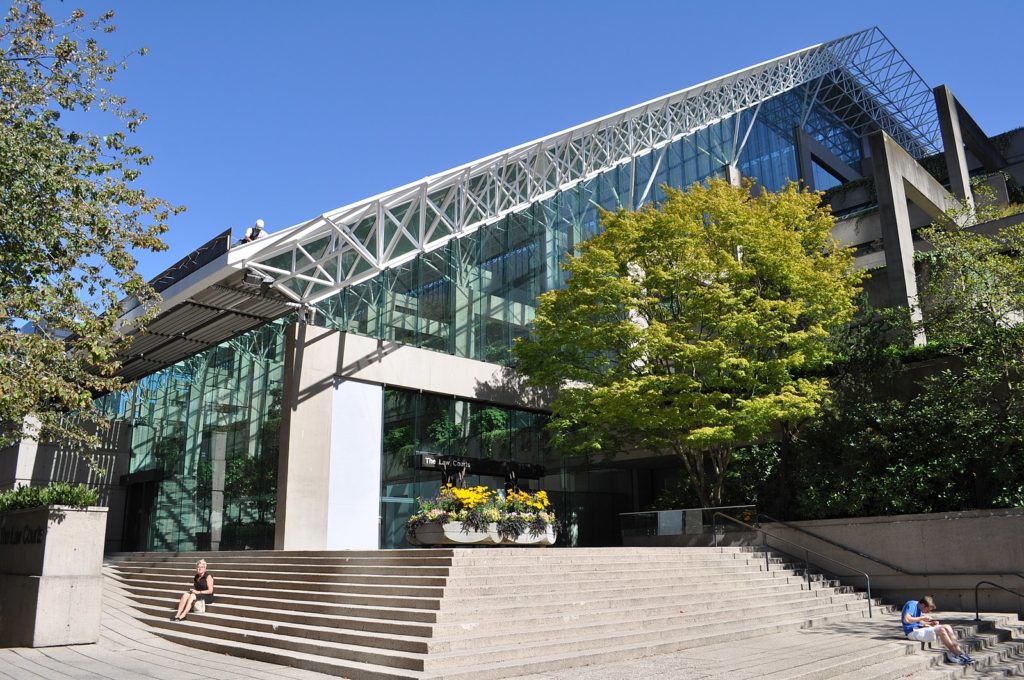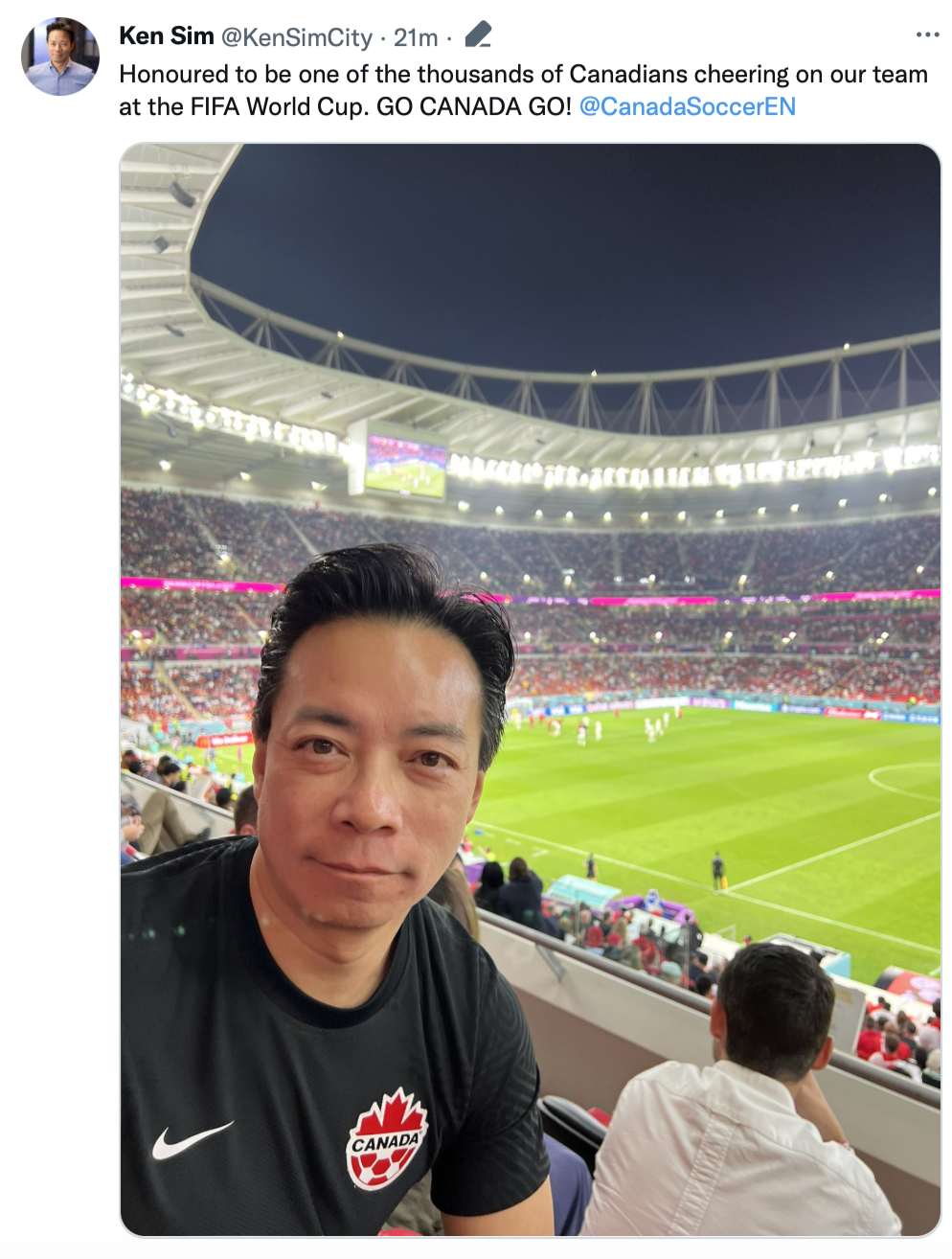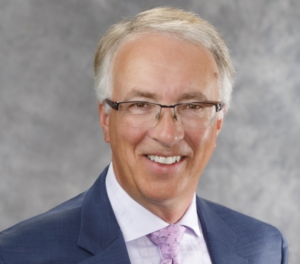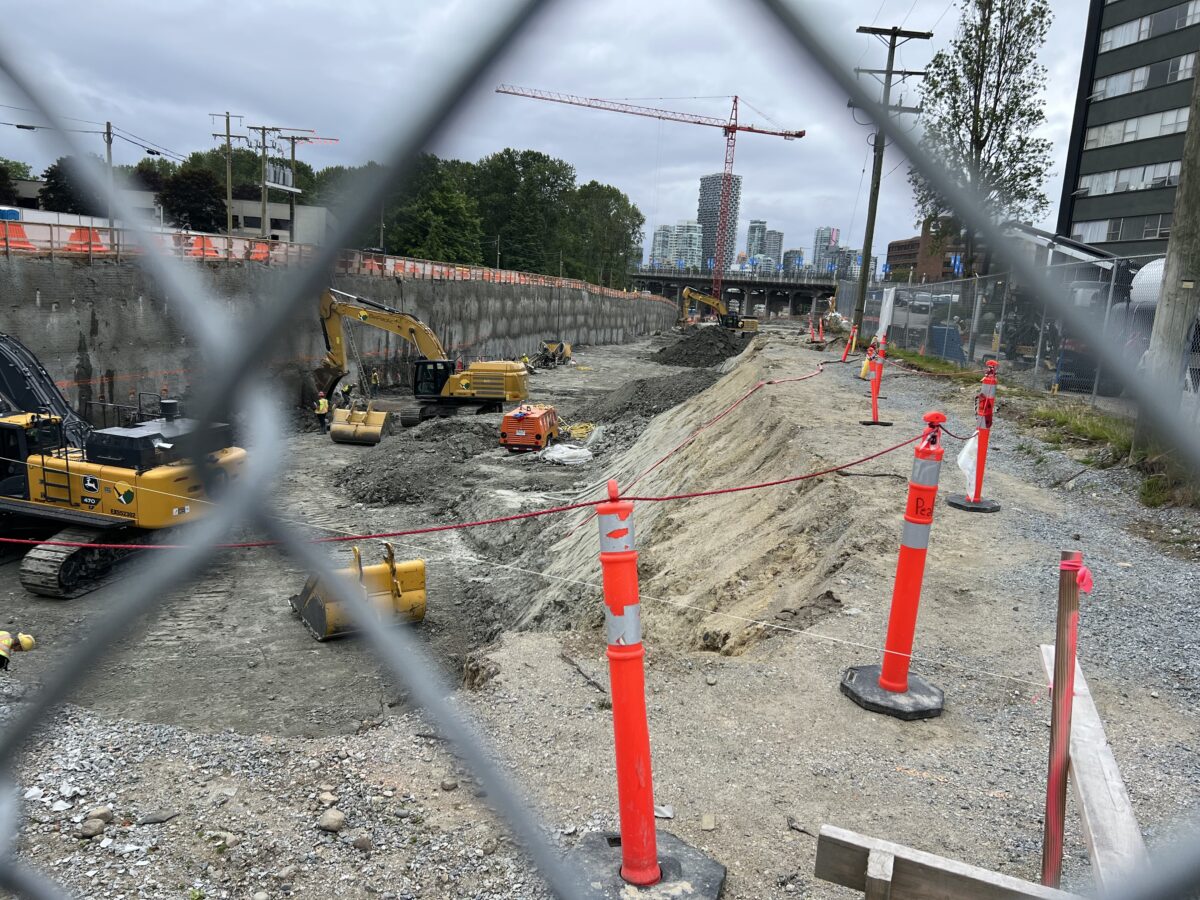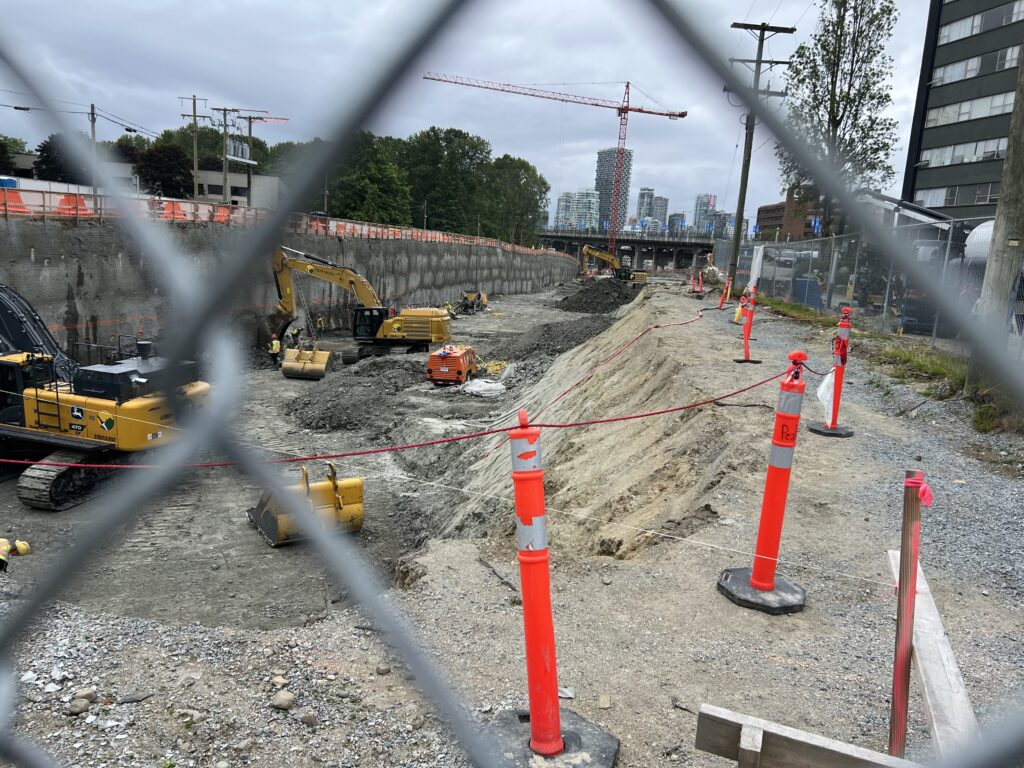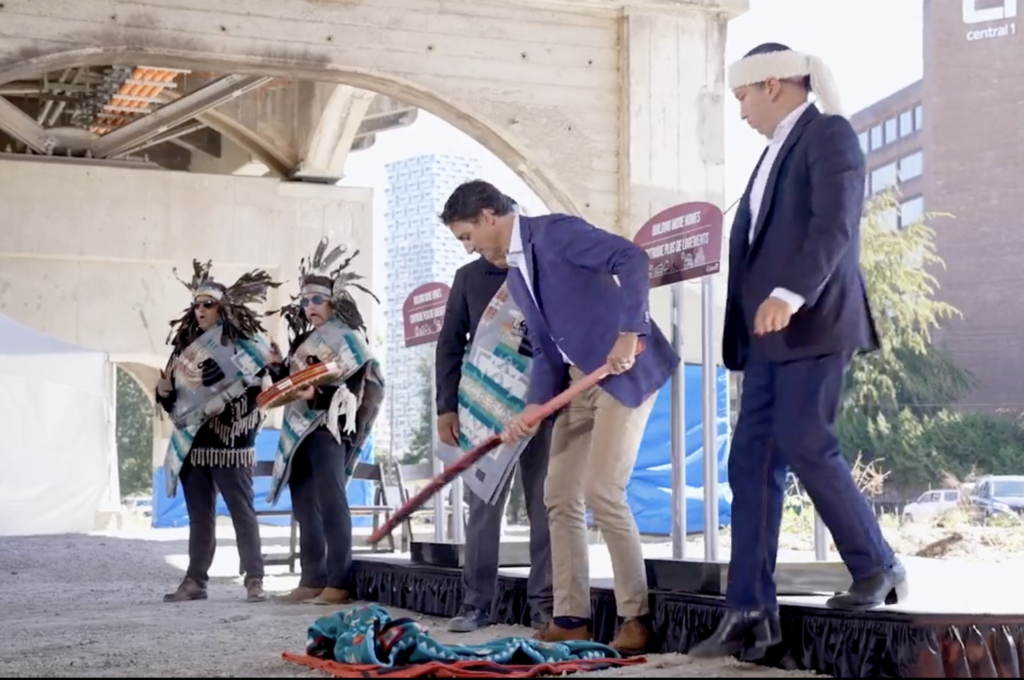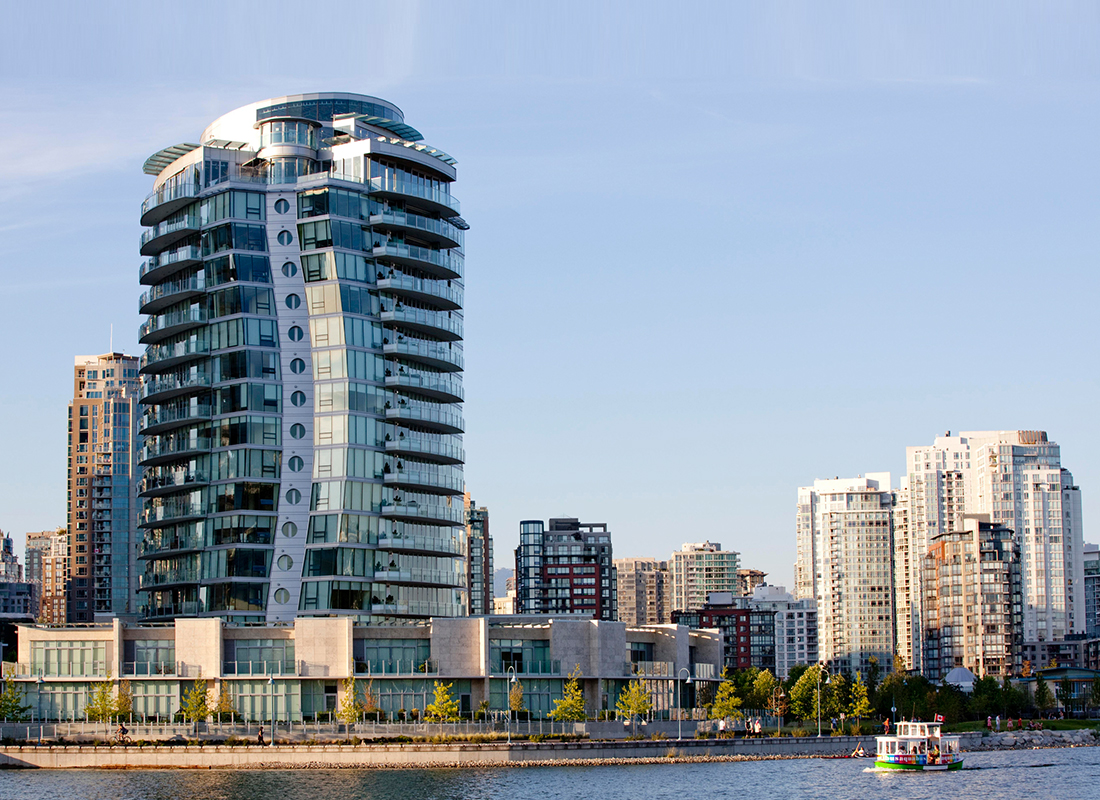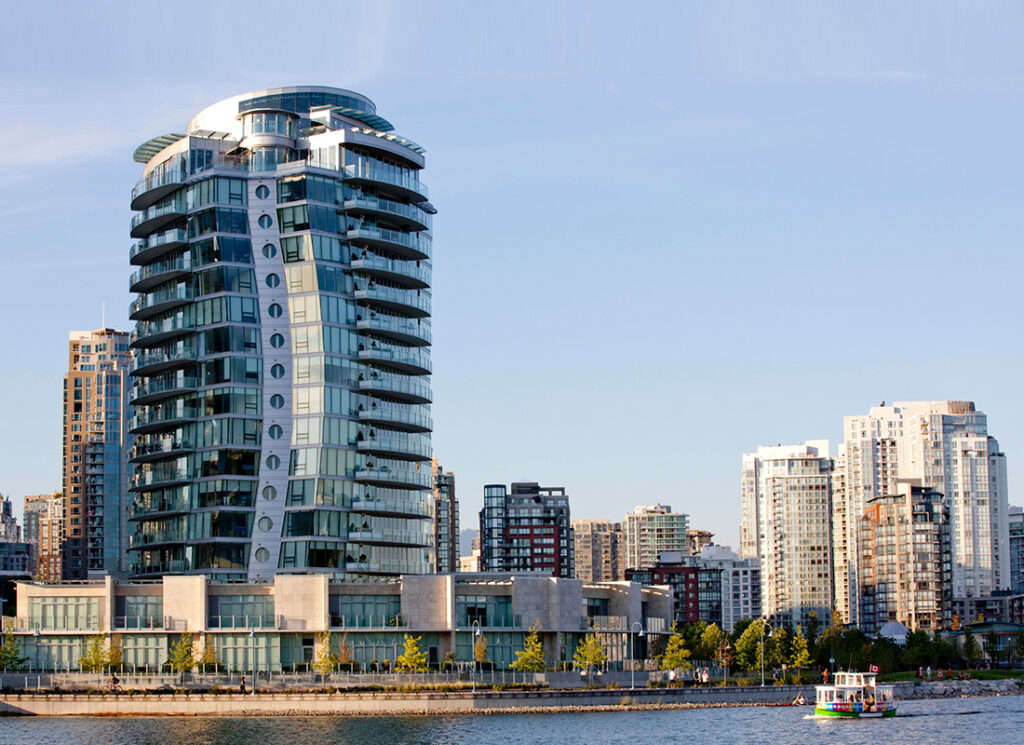Bob Mackin
Mayor Ken Sim said Vancouver city council will not follow the lead of Seattle city council, which released its contracts for the FIFA 26 World Cup.
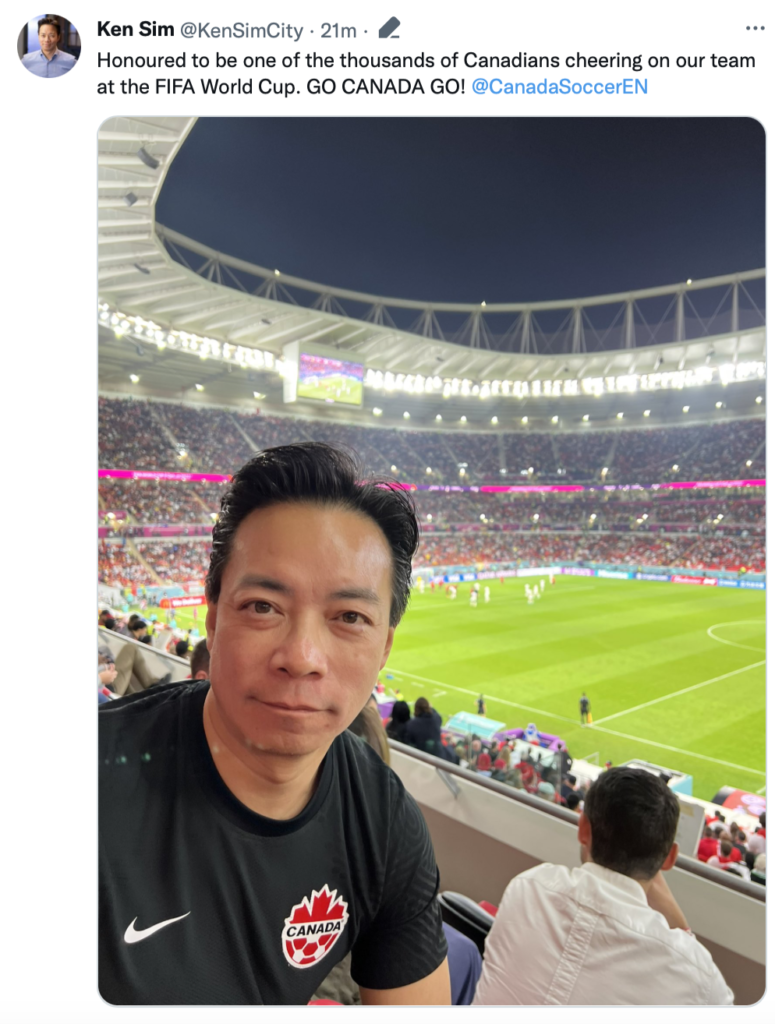
Ken Sim at the Qatar 2022 World Cup (Ken Sim/Twitter)
Speaking Aug. 28 at a provincial housing announcement in South Vancouver, Sim said city council has discussed, during closed-door meetings, what it can and cannot release to the public. When it comes to the most-important documents, which define the duties of the event host and the event owner, “we are bound by confidentiality agreements.”
“Some things can be disclosed, some can’t,” Sim said. “But let’s be very, very clear. The City of Vancouver would not enter into something that we believe would be detrimental to the taxpayers, the residents, not only of Vancouver, but the province as well.”
Vancouver and Seattle are among 16 cities in Canada, U.S. and Mexico for the 48-nation, 104-match tournament in less than three years. On Aug. 8, Seattle officials released the host city and stadium agreements when city council formally delegated responsibilities to the Seattle International Soccer Local Organizing Committee (LOC).
The host city contract said Seattle’s host city authority is responsible for supporting the government to provide safety, security, fire protection and medical services at no cost to FIFA, plus free public transportation to ticketholders on match days, and to anyone accredited by FIFA throughout the competition period. Unless otherwise explicitly stated, the host city authority shall be responsible to bear all the costs of hosting and waive all claims of liability against FIFA, its officials and related entities.
“I can’t comment as to what’s happened at Seattle because I don’t know what’s happened,” Sim said. “I don’t know if they’ve breached one of their agreements or if they have a different agreement. But I can tell you, at the City of Vancouver, everything that we can disclose we enthusiastically disclose, and we’re looking at this from a lens of fiscal responsibility and what’s best for the residents of B.C.”
B.C.’s Office of the Information and Privacy Commissioner has repeatedly ruled in favour of releasing contracts between public bodies and private entities under the freedom of information law. In 2021, an adjudicator ordered Canadian Soccer Association Inc. (CSA), on behalf of FIFA, to release the contract with B.C. Place Stadium for the Canada 2015 Women’s World Cup. CSA dropped its court challenge in February 2022. The document showed the maximum payment for exclusive use of BC Place for almost six weeks was just under the $2 million subsidy provided by the BC Liberal government.
Meanwhile, short-term rentals through Airbnb and Vrbo could ease the hotel room shortage on the road to 2026, but the NDP government’s housing minister acknowledged the struggle with high rents and low vacancy rates for long-term rentals.
Ravi Kahlon said the government needs to “find that balance” between the hotel industry and “short term rentals that are bypassing local government rules, not paying their fair share, and displacing local residents.”
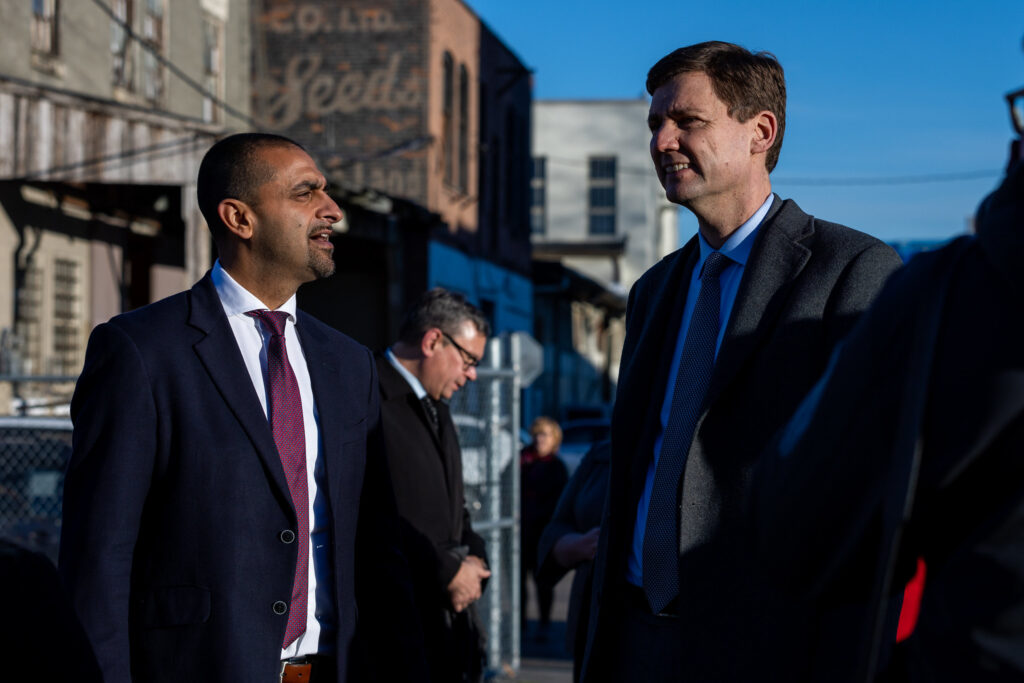
Ravi Kahlon (left) and David Eby in December 2022 (Flickr/BCGov)
“We’ll have to more to say on that in the coming weeks,” Kahlon said.
Sim said the World Cup offers opportunities to “look at things differently,” with the expedited development permitting and the possibility of cruise ships to augment hotels in June 2026.
“We’re taking a very empathetic and human lens to it as well, to make sure that our people don’t get displaced.” Sim said.
Vancouver is expecting to host five matches in early June 2026, while Seattle’s LOC estimates it could get up to eight at Lumen Field. The LOC co-chair revealed at an Aug. 3 city council committee meeting that between 400,000 and 750,000 unique visitors are expected to descend on Seattle for two-to-three days each, with 50% to 70% from other countries. Maya Mendoza-Exstrom, who is also the Seattle Sounders’ chief operating officer, estimates all accommodation between Bellingham and Portland will be full.
“We really do expect 100 per cent of hotel nights, border-to-border, I mean it is going to take everything on that transportation corridor, I-5, on our rail system, using our extended regional network to access the hotels between Bellingham and Portland and then east along I-90, as well,” Mendoza-Exstrom said.
The Destination BC Crown corporation estimated B.C. could draw 269,000 World Cup visitors, approximately half from outside Canada and the U.S.
The B.C. government announced in June 2022 that B.C. taxpayers could expect a bill of $240 million to $260 million to subsidize FIFA. But, in January of this year, the province said the city is now responsible for $230 million in costs. To help raise money for the tournament, the provincial government gave Vancouver special power to levy a 2.5% accommodation tax through 2030.
The province has not elaborated on cost estimates for BC Place, such as installation of a temporary natural grass pitch and interior renovations to transform part of the B.C. Sports Hall of Fame into additional luxury suites.
A study on local, regional and national economic impacts of mega events by Victor Matheson, an economics professor at the College of the Holy Cross in Massachusetts, found that many large sporting events “simply supplant, rather than supplement the regular tourist economy.”
“In other words, the economic impact of a mega-event may be large in a gross sense but the net impact may be small,” Matheson concluded.
Support theBreaker.news for as low as $2 a month on Patreon. Find out how. Click here.
Bob Mackin
Mayor Ken Sim said Vancouver city
